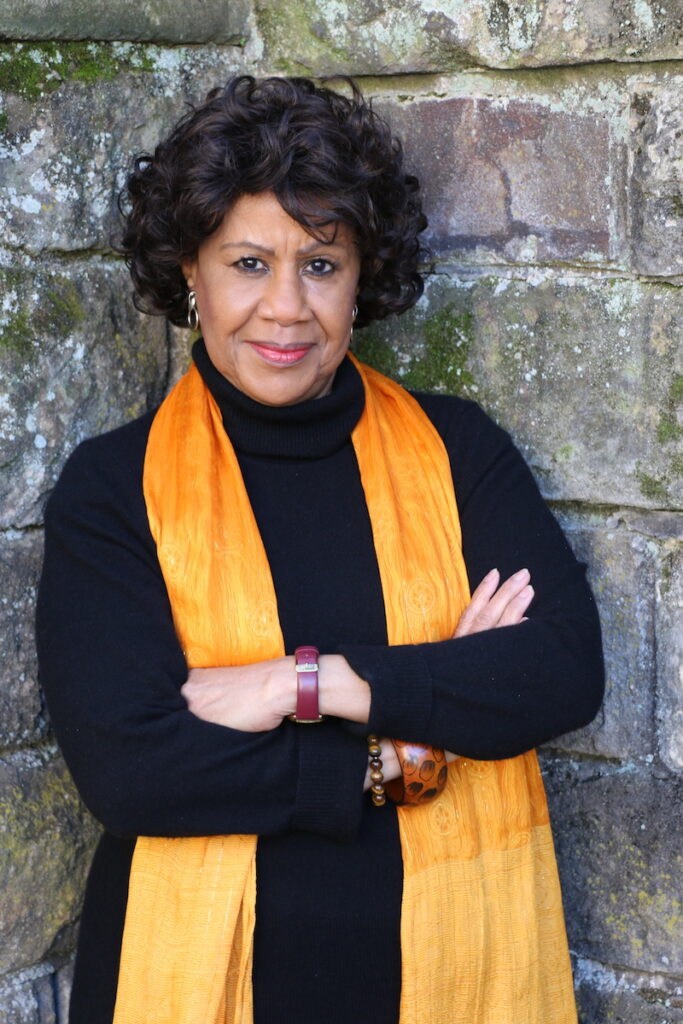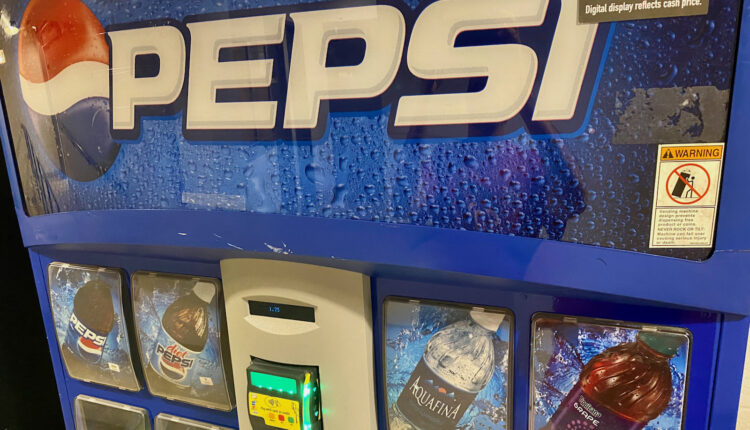jonetta rose barras: Aw sugar, sugar and the DC Council
Ward 1 DC Council member Brianne Nadeau will conduct a public hearing next week on Mayor Muriel Bowser’s fiscal year 2022 budget and financial plan for the Department of Human Services. If past is prologue, she likely will scope out programs ripe for additional spending. Nadeau, the longtime chair of the Committee on Human Services, is one of the legislature’s notorious spendthrifts who seem to believe more money automatically equates to better services.

Already Bowser has proposed spending a total of $646,818,155 on the Department of Human Services — a 6% increase over this year’s FY 2021 budget. The agency oversees and manages everything from Temporary Assistance to Needy Families and food stamps to rapid rehousing and homeless prevention. Most of DHS’ budget — $431,874,000, a 2.7% increase from fiscal 2021 — comes from local tax revenues; the balance is from “federal resources,” according to Office of the Chief Financial Officer (OCFO) documents.
Interestingly, some council members have argued that the substantial increases in local spending proposed by Bowser result from an infusion of federal dollars and cannot be sustained in the out years. But, instead of reducing spending, those same voices have begun talking about raising taxes. Go figure.
Nadeau, a darling of local nonprofits with mostly national agendas, is a member of the tax and spend crew. She was among the group that proposed new taxes last year in order to add money for their favored projects, which is comparable to the ones backed by their favored special-interest groups.
This year, the city has received nearly $3 billion from the federal government as part of the American Rescue Plan Act of 2021. Some of those funds actually stretch over multiple years; still, that won’t satiate legislators’ lust for taxes. In fact, over the past week as I listened to council members during budget hearings, their recurring question to advocates and government officials was, How much more money do you need?
As recently as Thursday, it seemed that Nadeau had found a vehicle that could feed the far-left legislators’ cash and spend appetite. She had introduced the Nutrition Equity Amendment Act of 2021. It was co-sponsored by Chairman Phil Mendelson, Ward 3 Council member Mary Cheh, Ward 6 Council member Charles Allen and at-large Council member Elissa Silverman. At-large Council member Anita Bonds was also a co-sponsor, but sent a May 28 letter to the secretary of the council asking that her signature be removed from the legislation. All six of them are up for reelection in 2022 and expected to run again.
Among other things, the Nutrition Act as introduced would impose an excise tax of 1.5 cents per ounce of sugary drink delivered to a distributor or retailer. It wouldn’t apply to alcoholic beverages or those fancy coffee drinks folks grab multiple times a day.
The bill would also establish new mandates and protocols for any homeless shelter meal delivery contract, including permitting the use of donated and recovered food while providing an additional 25 cents for per meal reimbursement when “one component is predominantly locally grown produce.” Those elements seem to advantage a popular nonprofit organization, DC Central Kitchen. It could handicap minority-owned businesses such as Henry’s Soul Café, which holds a sizable portion of the current shelter meals contract.
Nadeau had claimed that the proposal would reduce or even eliminate health disparities that the District could “no longer wait to address” head-on. She said improvements in food delivery for the shelter system and the reduction of “unhealthy consumption of sugary drinks” citywide would “go a long way to ending those disparities.”
While she strongly defended the legislation during her committee’s May 19 public hearing, Nadeau did an abrupt turnaround late this week. She withdrew the bill.
“I continue to believe that the goals of this legislation, and the tireless coalition of grassroots leaders here in the District of Columbia who worked so hard to craft it with a focus on addressing systemic and persistent health inequities, are the right ones,” Nadeau said in a prepared statement sent Friday afternoon via email.
“The pandemic has brought into bold relief the long standing inequities of our health care system and I know that if we all work together to address them, we can change the health outcomes of our most vulnerable residents,” she continued, “I recognize that there is not enough support to move the legislation forward.”
In withdrawing the bill, Nadeau accused the beverage industry and corporations of “standing in the way of community-based solutions.” However, it was clear from the hearing that at least half of the people who testified did not support the legislation. Further, it was mostly small minority businesses who met with her earlier this week and pressured her into pulling the measure.
On Friday morning she met with the bill’s supporters to inform them she was not moving forward; she also called her co-sponsors to alert them. The question that should be asked is why she even introduced the bill if she wasn’t prepared for the opposition. It’s not like she didn’t know what was coming.
Upon the bill’s introduction in late March, a large coalition of small and local businesses operating as the Alliance for an Affordable DC immediately mounted an aggressive campaign, asserting that it was not the right time to talk about new taxes. Some group members were worried about contract changes that could disqualify them from bidding. It seemed like a double whammy when they were still battling the economic effects of the pandemic on their bottom lines.
Nadeau dismissed those concerns during the public hearing. “There is no good evidence [the bill] will result in job loss,” she argued.
In the opening chapter of the COVID-19 pandemic, there was indisputable evidence that it would lay waste to the country’s economy.
Thanks to effective organizing, Nadeau was made to listen and accept defeat. Business leaders and their advocates are happy their efforts paid off.
“It was the right thing to do,” A. Scott Bolden, managing partner at Reed Smith LLP, said in an interview with me earlier this week.
He had written a May 19 letter to Nadeau, arguing that the nutrition legislation “gives DC Central Kitchen and other nonprofit organizations an advantage in contracting with the city to provide meals for DC homeless shelters and transient housing facilities.” He added that commercial small businesses like Henry’s Soul Café would be injured.
The District’s contract to deliver homeless shelter meals became controversial in 2019, when Henry’s Soul Café snatched some of the business from nonprofit DC Central Kitchen. The latter trains homeless people and often uses donated and recovered food in its menus; it had been the primary government contractor for food services at DC homeless shelters since 1989. Suddenly, another player entered the field and won the contract that is administered by the Community Partnership for the Prevention of Homelessness. Everyone, it seemed, was up in arms. Cheh called for DC Attorney General Karl Racine to investigate the business for fraud.
After a while, things appeared to die down. With the Nutrition Act, it seemed as if Nadeau, Cheh and the others were advancing a law that could help Central Kitchen recoup the contract.
“I appreciate her leadership in making the change,” Bolden said of Nadeau’s withdrawal from the legislation. “The constructive lesson learned is that we should be talking about these issues before the fact.”
No one should start singing the ding-dong song yet.
Nadeau may have pulled her support. But any of the four co-sponsors could double back and reintroduce the legislation.
“The doctors and advocates could approach another council member, if they felt compelled to do so,” confirmed Nadeau’s spokesperson.
At the public hearing, Cheh seemed very passionate about the legislation. She is a strong supporter of DC Central Kitchen and has consistently campaigned against sugary drinks, including successfully persuading her colleagues in 2019 to increase the tax on sodas.
In defending the bill in May, she cited the difference of 15 years between the life expectancy of the predominantly white residents of Ward 3 and the largely Black residents of Ward 8. “Sugary drinks represent significant health risks to our children,” Cheh said.
From my perspective, more children who live east of the Anacostia River are dying because of rising poverty, poor housing conditions, parental abuse and neglect, unresolved trauma and community violence than from “sugary drinks.”
The revenues collected from the excise tax as provided in Nadeau’s proposal would have gone into a Nutrition Equity Catalyst Fund administered by the director of the Food Policy Council. Even that is suspect: The money would be disbursed, apparently, without competition to select community groups, some of which were involved in the development of the legislation; a representative of at least one, DC Greens, sits on the food council.
When I asked DC’s food policy director Ona Balkus earlier this week whether the agency supported the legislation, she demurred. “The Food Policy Council is a mayoral appointed board, so we cannot take a formal position on legislation unless the mayor has taken a position (which she hasn’t),” she wrote in an email to me.
“We did publish a community advocacy guide that includes themes from FPC discussions about the bill,” she added.
To me, the agency’s website reads like it’s all-in. Maybe my comprehension is off a tad.
The city doesn’t need a new tax in order to educate people about sugar and the dangers of excessive consumption. The mayor has proposed a total $17.5 billion fiscal year 2022 budget. If legislators insist on being nannies, the city has recreation centers, libraries and community health clinics that are fully equipped to serve as vehicles for any anti-sugar drive.
Further, if legislators review their own past behavior, they must know they don’t need to create a new tax or a new fund to keep the money flowing to their friends.
While we’re being cleareyed about all this, it’s worth correcting the record: Consumption of excessive amounts of sodas or “sugary drinks” is not the sole domain of Black and Brown people; members may speak with J.D. Vance, author of “Hillbilly Elegy,” to gain additional insight.
Moreover, if legislators think a tax will put an end to all of that, they may want to look more closely at the results of the 2% increase in the soda tax they pushed through in 2019.
In FY 2020, the first year of implementation, the new 8% tax brought in a total of $6,181,546, according to the OCFO. In the first six months of FY 2021, it brought in $3,283,436. It seems on track to duplicate the results from the previous year, which might suggest consumption hasn’t actually dropped.
Aw sugar, sugar.
Nadeau may be out of the picture, but watch the council’s upcoming budget deliberations carefully. Business owners and their advocates know what I know: In 2019, the council circumvented its normal legislative process to increase the soda tax. Cheh convinced her colleagues to incorporate the measure in the Budget Support Act (BSA), bypassing public hearings and committee markups.
The BSA is where the council conducts its covert budget actions. Sugary drinks aren’t the only habit that’s hard to break.
jonetta rose barras is an author and freelance journalist, covering national and local issues including politics, childhood trauma, public education, economic development and urban public policies. She can be reached at thebarrasreport@gmail.com.



DC Council should focus on making more health care services, including health education, available to residents instead of abusing their taxing authority to regulate behavior and personal choices.